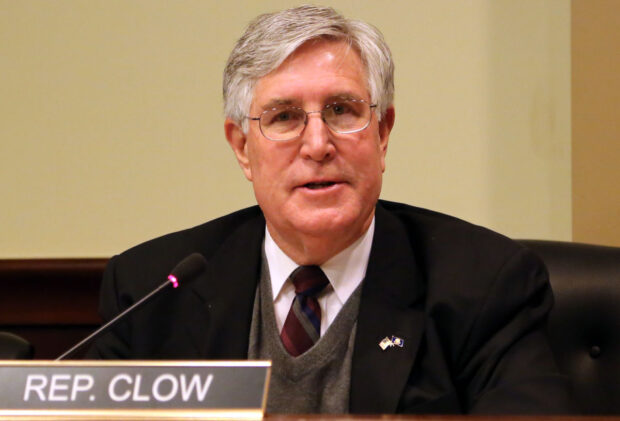Confusion abounded Thursday as House Education Committee members continued their convoluted debate over administrative rules.
This time, a new set of pending rules tied the committee in knots. Legislators grappled with how these new rules would intersect with the existing omnibus rules, some of which the committee rejected earlier this week.
New on Thursday, House Education picked apart rules governing eligibility for the Opportunity Scholarship and delayed a vote on a science assessment rule. House Education did so even though the Senate Education Committee already approved both rules Wednesday, rendering any House action meaningless.
Under the Legislature’s wonky rulemaking process, it’s enough for one chamber to approve most rules, but it takes both legislative chambers agreeing to reject a rule and remove it from the books.
During Thursday’s meeting, one legislator said she couldn’t find her notes on certain rules.
Then, Rep. Gary Marshall, Idaho Falls, gave notice that he “will move to reconsider the vote on any docket we did not clearly understand.”
That means Marshall may seek a do-over on any or all of Thursday’s votes when House Education reconvenes Friday.
 Chairman Lance Clow, R-Twin Falls, said he understands there may be a few speed bumps as the Legislature undertakes an unprecedented review of administrative rules, which include the academic standards as well as assessment and certification requirements.
Chairman Lance Clow, R-Twin Falls, said he understands there may be a few speed bumps as the Legislature undertakes an unprecedented review of administrative rules, which include the academic standards as well as assessment and certification requirements.
“This is first time, maybe in the history of the Legislature, that we’ve gone through this process,” Clow said.
While House Education struggled, Senate Education needed just 30 minutes to deal with the exact same docket of rules Wednesday, delaying just one vote.
At any rate, it’s certainly been a historic week in House Education.
- On Tuesday, House Education repealed Idaho’s standards for initial teacher certification.
- On Wednesday, House Education repealed all of Idaho’s academic standards for K-12 public schools for English, math and science. It also repealed the senior math requirement and trashed several appendixes attached to the standards.
While educators and administrators have testified that standards set quality benchmarks that students are expected to meet or exceed at each grade level, House Education’s vote jeopardizes all academic standards for English, math or science. Senate Education will get the final and decisive vote, but that won’t occur until at least next week.
The stakes are thus:
- If Senate Education approves all of the academic standards and teacher certification standards, those rules will remain on the books.
- If Senate Education rejects the academic standards or teacher certification standards, those would be removed from the books with nothing to replace them.
Until the Senate acts, it’s impossible to know which scenario will play out.
Trustee training
Senate Education endorsed a bill requiring new trustees to get training within their first 180 days in office.
“Accountability should really start with authority,” said Sen. Dave Lent, R-Idaho Falls, a former trustee who is sponsoring Senate Bill 1285.
If SB 1285 passes, new trustees would need to undergo training “on the duties of a board member,” while veteran trustees would need to get biennial training “on fundamentals of board governance, issues of current concern in public education, and leading innovation and change in public education.”
Training is already available through the Idaho School Boards Association, said Lent, but only 20 to 25 percent of districts use it.
ISBA is neutral on the bill. ISBA endorses the value of training, policy and government affairs director Quinn Perry said, but is worried that a training requirement might make it even harder for rural districts to recruit volunteer trustees.
SB 1285 now heads to the Senate floor.
Graduation pathways
Senate Education also approved a nonbinding resolution urging the state to look at different pathways to high school graduation.
“Students should be honored and supported whether they choose a college-bound path, a career technical path, or a combination of both,” according to Senate Concurrent Resolution 122.
Idaho’s graduation pathways have focused largely on college, said Sen. Steven Thayn, R-Emmett. His resolution urges the State Board of Education and the State Department of Education to research and approve new graduation pathways, looking at other states’ graduation requirements for students in career-technical programs.
This resolution now goes to the Senate floor.
Kurt Liebich
Without discussion, Senate Education voted unanimously to send Kurt Liebich’s nomination to the State Board to the full Senate.
Gov. Brad Little appointed the Boise businessman in December, but State Board appointments are subject to Senate confirmation.
Little is seeking to fill two vacancies on the State Board. The Senate has already confirmed Little’s other nomination, former state Sen. Shawn Keough of Sandpoint.
